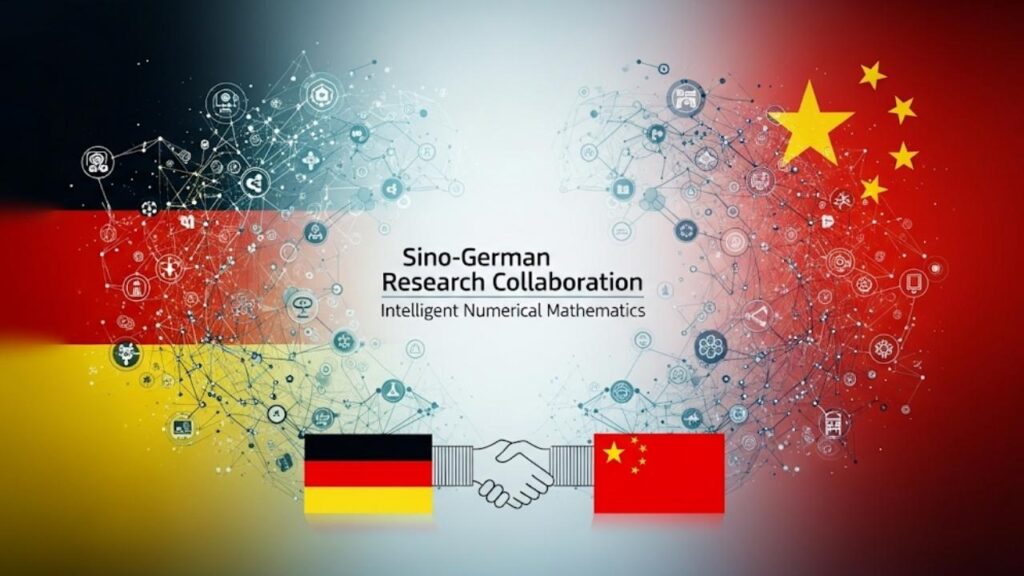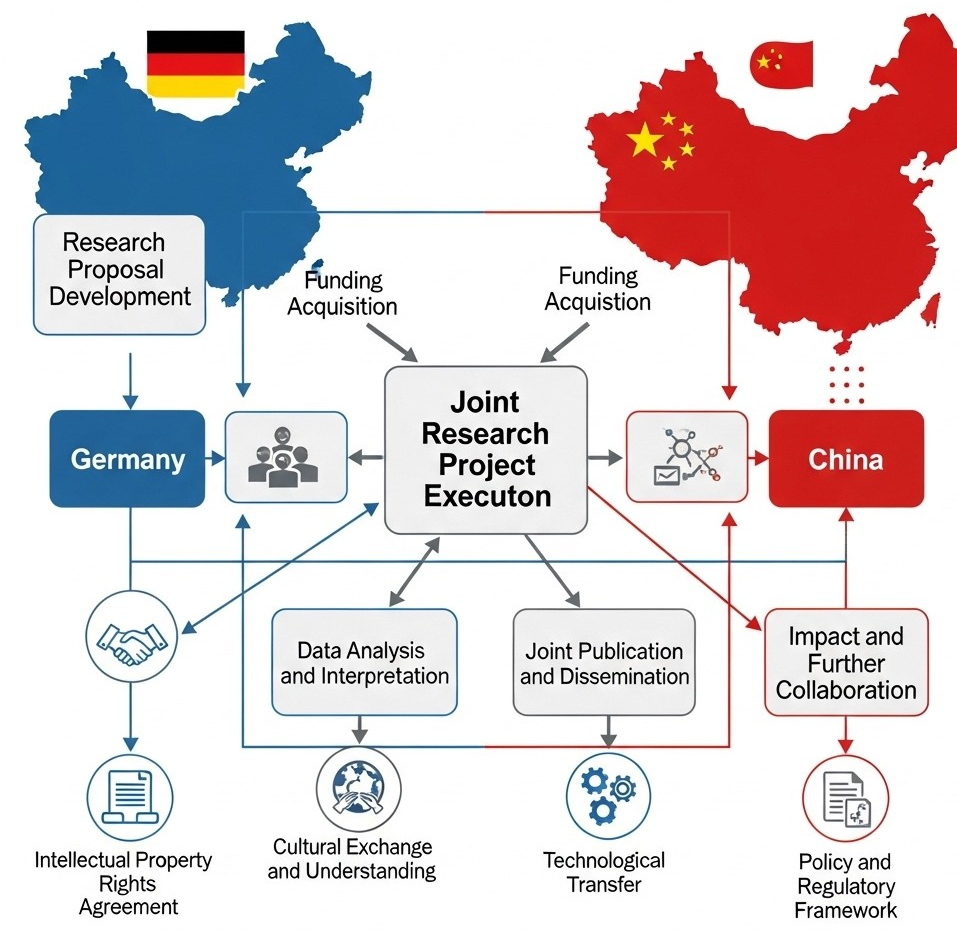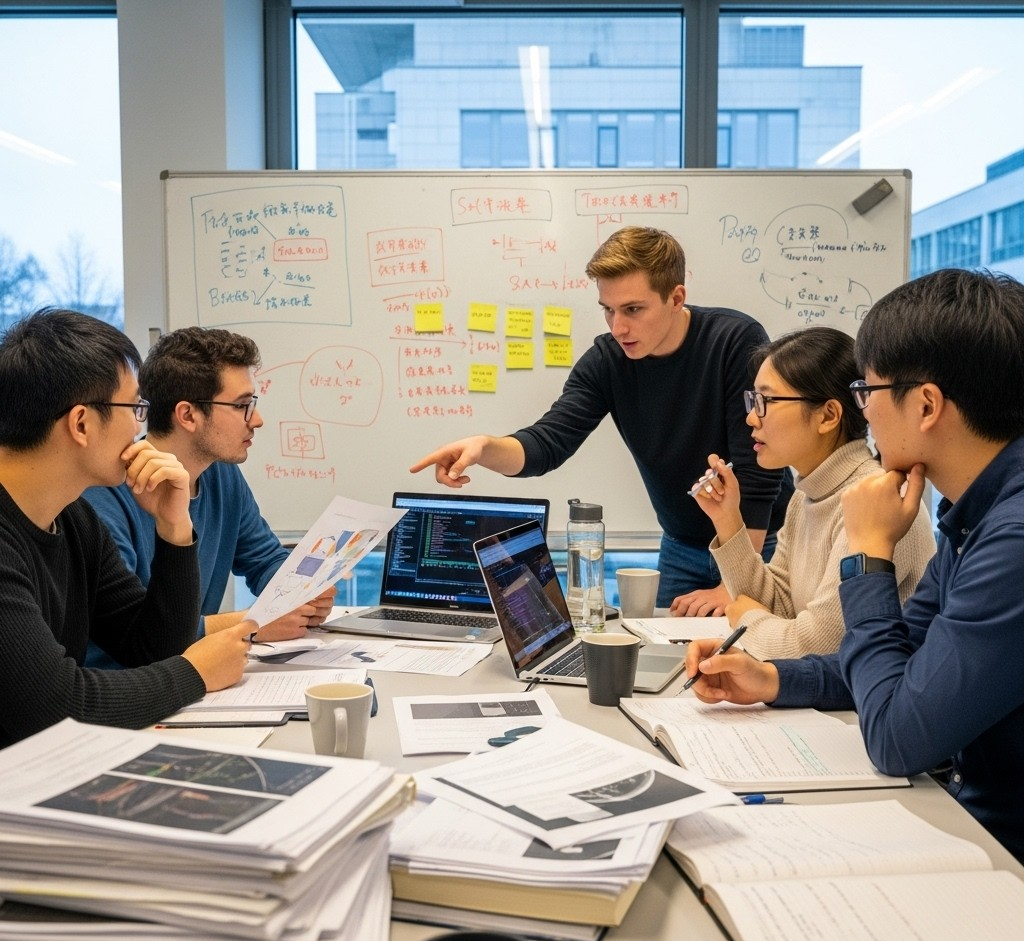Getting into a top-tier German university for your Master’s or Ph.D. is a major accomplishment, and finding a way to fund that dream can feel like a maze. But what if there was a path designed specifically for ambitious minds at the intersection of mathematics and machine learning? The Sino-German Scholarship for Intelligent Numerical Mathematics is that golden ticket. This guide is crafted to demystify the process, offering you a clear, actionable roadmap to successfully apply for this prestigious opportunity. We’ll walk through the requirements, crucial deadlines, and key strategies to make your application stand out. So, let’s get started on turning your academic goals into reality.

What is the Sino-German Call for Intelligent Numerical Mathematics?
The Sino-German Call for Intelligent Numerical Mathematics (iNum) is not a typical student scholarship; it’s a joint initiative by the German Research Foundation (DFG) and the National Natural Science Foundation of China (NSFC) to fund collaborative research projects. Its goal is to bring together leading researchers from both countries to push the boundaries of combining numerical mathematics with machine learning. Think of it as a bridge between two academic powerhouses, where teams work together on groundbreaking research. DFG’s Official Call for Proposals.
This program is specifically designed for academics and researchers, from Ph.D. students to established professors, who are already part of a collaborative project proposal between a German and a Chinese institution. As a potential applicant, you would be a crucial part of a research team, not just an individual applying for a general scholarship. This distinction is key to understanding the application process. DFG’s elan Portal.
Eligibility and Application Requirements for Research Teams
Applying for the Sino-German Scholarship 2026 for Intelligent Numerical Mathematics requires a unique approach, as it’s a team effort. The application is submitted jointly by principal investigators (PIs) from both Germany and China, not by a single student. If you are a student or a young academic, your application is part of a larger project proposal submitted by your supervising professor or PI.
The German PI submits the joint proposal to the DFG via their elan portal, while the Chinese PI submits their documents to the NSFC. Both parts of the application must be submitted by the deadline and must be identical in their scientific content and the applicants involved.
Who is Eligible?
- Principal Investigators: The PIs on both the German and Chinese sides must be eligible to apply to their respective funding agencies (DFG and NSFC).
- Research Focus: The project must involve a convincing collaboration between German and Chinese partners, and the anticipated research benefit must be clearly outlined. The research should combine numerical methods with learning-based approaches in fields like model reduction, solver optimization, or parallelization.
- Students and Young Researchers: If you are a Master’s student, Ph.D. candidate, or a postdoc, you will be included as a member of the research team in the project proposal. Your qualifications, like a strong academic background in mathematics or a related field, are essential to the team’s success.

Required Application Documents
While the PIs handle the main submission, you’ll need to prepare specific documents that showcase your value to the research team. Based on my experience advising students, the success of a collaborative proposal hinges on the strength of every team member. You’ll need to provide:
- Curriculum Vitae (CV): A detailed, tabular CV that highlights your academic achievements, research experience, and relevant skills. This is your chance to show how you fit into the project.
- Extensive Research Proposal: The full proposal, which you would contribute to, must describe the entire research program and the team. It must detail the total resources needed for both the Chinese and German teams.
- Proof of Academic Excellence: This includes university degree certificates (Bachelor’s, Master’s), academic transcripts, and a list of any publications or papers you have authored.
- Language Proficiency: While German proficiency is not a formal requirement for this specific call (as proposals are in English), you must demonstrate strong English skills with a TOEFL or IELTS certificate if your native language is not English.
Key Deadlines and What to Expect
The application window for this specific call is quite focused. For the Sino-German Scholarship 2026 for Intelligent Numerical Mathematics, German PIs must submit their proposals to the DFG’s elan portal by October 30, 2025 , DFG official announcement. If you are a German PI and it’s your first time submitting, you must register in the elan portal by October 23, 2025.
It’s important to remember that Chinese PIs have a similar but separate deadline to submit their part of the proposal to the NSFC. The funding decisions are expected to be made by May 2026.
| Key Milestone | Date |
| First-time DFG Elan Portal Registration (for German PIs) | October 23, 2025 |
| Proposal Submission Deadline (DFG) | October 30, 2025 |
| Funding Decisions Announced | May 2026 |
How to Increase Your Chances of Success
Beyond meeting the formal requirements, there are several things you can do to make your application truly shine.
1. Find a Strong Collaborative Partner
This scholarship is all about collaboration. The most important step for any potential applicant is to be part of a well-defined, innovative joint project. Both the German and Chinese PIs must have a proven track record of excellent research in the field of intelligent numerical mathematics. The DFG and NSFC even host matchmaking workshops to facilitate connections. For instance, a workshop on this topic was held in September 2025 to help foster scientific contacts.
2. Craft a Compelling Research Narrative
The proposal must tell a story. It needs to explain not just what you’ll be doing, but why it matters and how the collaboration between the two teams creates something greater than the sum of its parts. Emphasize the unique strengths each team brings to the table and how the cross-cultural exchange will accelerate the research.

3. Highlight Your Contribution
For a young researcher, it’s crucial to show exactly how your skills and expertise fit into the project. If you are a PhD student, your role might be to develop a specific algorithm. If you are a postdoc, you might be tasked with leading a key work package. I’ve seen many successful applicants focus on articulating their specific value proposition within the larger research framework. Don’t just list your accomplishments—connect them directly to the needs of the project.
4. Pay Attention to Detail
With an application this complex, every detail matters. Make sure all documents are meticulously prepared, translated if necessary (but note that the main proposal is in English), and submitted on time. Double-check that all components of the proposal—the scientific content, the budget, and the list of team members—are identical across both the DFG and NSFC submissions.
Your Ultimate Guide to the International Masters Automatic Scholarships 2026 at Leeds University
Your Guide to Securing a Fully Funded KTH Sweden Master’s Degree Scholarship for 2026
FAQ
Q1: What is the difference between a scholarship and a research grant?
A scholarship is typically awarded to an individual student to cover their academic and living expenses. A research grant, like this one, is provided to a team or institution to fund a specific project. As a team member, you would receive a salary or stipend as part of the grant.
Q2: Do I need to be a Chinese or German citizen to be part of a research team?
Not necessarily. The call is for a collaboration between a German and a Chinese institution, with a German PI and a Chinese PI. As a student or researcher, you can be of any nationality, as long as you are formally affiliated with one of the collaborating institutions.
Q3: Is knowledge of German or Chinese required?
For this specific call, all documents and proposals must be submitted in English. However, a knowledge of either German or Chinese would be a significant advantage for daily life and cultural integration if you are based in Germany or China.










